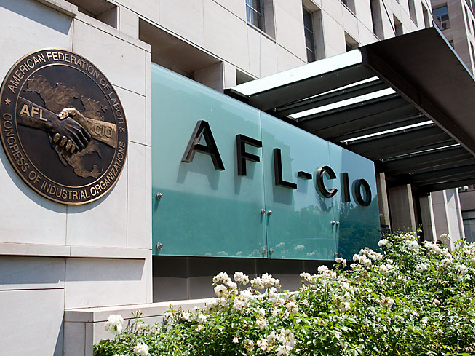The AFL-CIO is conceding its union lacks the power in the South to influence the upcoming 2014 elections, so it is not investing heavily in three hotly contested Senate races.
The AFL-CIO looked at the number of union members in Arkansas, Louisiana, and North Carolina and decided it just was not worth it. AFL-CIO political director Michael Podhorzer confessed, “Those states are states where we have relatively low union density. I think you’ll see in other battleground Senate states like Michigan, Alaska, [and] Iowa a really vigorous union program.”
Democratic Sens. Mark Pryor in Arkansas, Mary Landrieu in Louisiana, and Kay Hagan in North Carolina are all in close races for the Senate. North Carolina AFL-CIO President James Andrews conceded, “I would love to say that North Carolina is a major target for our movement nationally, and everyone is gonna be playing big here. But the reality is some will and some will not, and at the end of the day I’m rooting for wherever they’re playing.”
The South’s right-to-work states and a conservative electorate have been a bulwark against a union takeover; across the nation, the union membership rate is 11.3%, but in Arkansas, Louisiana, and North Carolina, it is roughly 5%.
The AFL-CIO wanted to unionize the auto plants being built in the South, but they cannot get a foothold. Workers at a Tennessee Volkswagen plant rejected the United Auto Workers’ attempt to unionize them as Podhorzer whined about GOP intervention:
If five years ago you even raised the idea that we came so close in a state like Tennessee it wouldn’t have been credible. Obviously, it would have been better if the workers had not been intimidated by the local politicians into believing this is gonna hurt their jobs.
The Center for Responsive Politics noted that of the $5.8 million raised by Hagan’s campaign and leadership PAC, only $74,000 came from labor; only $166,000 of Landrieu’s $6.3 million came from labor; and only about $186,000 of Pryor’s $4.1 million came from labor.
Arkansas AFL-CIO President Alan Hughes protested, “I think if you go back and look at some of the numbers, how close the races are, we say we have 32,000 members but you could say it’s 64,000 because of spouses. I think we can still make an impact, especially doing ground work.”
But Andrews concluded, “The reality is: Will they be here and pull out every stop to make this happen? Or will they be in Ohio or Pennsylvania? I understand that. I make those kinds of decisions every day.”

COMMENTS
Please let us know if you're having issues with commenting.